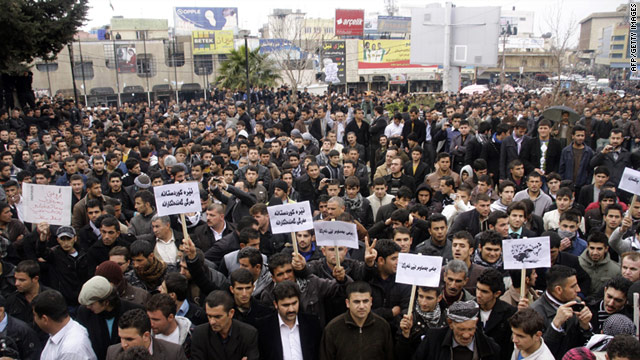 Kim unlikely to be affected by Egyptian Revolution due to information control (Photo courtesy of AP)
Kim unlikely to be affected by Egyptian Revolution due to information control (Photo courtesy of AP)
By Joseph Juhn
Impunity Watch Reporter, Asia
SEOUL, South Korea – As Hosni Mubarak stepped down last week after 30-year rule of Egypt, following the same fate of his Tunisian counterpart the previous month, the leaders of China and North Korea are wary of domestic upheaval.
Of course, some critics find it naive to hope that the fallout from dramatic events in the Middle East and North Africa can spill beyond the region to stir distant, repressed populations with no cultural or historical affinity.
This is especially so for countries like North Korea, where information is so tightly controlled that it will not likely be affected immediately by the evolving social network service that has played a pivotal role in Egypt’s popular revolution.
One of more effective way of disseminating information to North Korean people is rather old-fashioned. This week, South Korean activists hoisted helium balloons into the air and watched them drift into North Korea with a message attached: discard your leaders, just as the Egyptians did.
“The Egyptian people rose up in a revolution to topple a 30-year dictatorship,” said one of the leaflets. “The North Koreans too must revolt against a 60-year-old dictatorship.”
North Korea is known to have one of the worst human rights records. The strain of poverty and inefficient government in North Korea matches or exceeds that of Arab autocracies currently marred by street protests.
There is no sign of an organized opposition in North Korea, where most people do not have access to outside TV and radio, or the Internet. “They are just completely cut off from the outside world. They have their local system which is in no way physically connected to the Internet” said Andrei Lankov, a professor at Kookmin University in Seoul.
According to the scholar, possession of a short-wave radio to listen to news from abroad carries a 5 to 10 year prison term. “Any publications, including publications from other communist countries, are off-limits for people,” he said.
This is a stark contrast to Egypt, where protesters used Twitter, Facebook and YouTube to organize the uprisings. It is reported that North Korean state media have not reported events in Egypt, and it is doubtful that the leaflets of the South Korean activists, who also send short-wave radio broadcasts to the north, will reach or convince many people.
Paik Hak-soon, an analyst at the Sejong Institute research center near Seoul, speculated that top heads in North Korean government were “definitely aware” of what is happening in Egypt. But a similar uprising is unlikely, he said.
“There are so many differences in terms of ideology, in terms of power structure, in terms of domestic and external relationships,” Paik said. “North Korea is basically an isolated, socialist regime, protected by a most reliable and most supportive big power, China.”
Estimated up to 2 million North Koreans are believed to have starved to death in the 1990s due to years of flooding, poor harvest and economic mismanagement.
Despite a lack of Internet access, a growing number of North Koreans are being exposed to modern information technology and South Korean pop culture through USB devices, according to Lankov.
“In the long run, it will make a tremendous change,” he said.
For more information, please see:
The Korea Times – Pyongyang, Beijing wary of change in Egypt – 16 February 2011
The Associated Press – Egypt revolt becomes global case study – 19 February 2011
Yonhap News – N. Korea not likely to be affected by Egyptian revolution due to information control: expert – 16 February 2011


